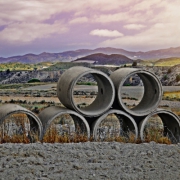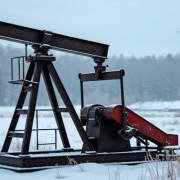European energy utilities are traders now – an oxymoron
Trading is not for everyone. One must want it and then do it right. If your priorities lie elsewhere, you should think again before jumping in.
In 1900, Frank Baum published The Wonderful Wizard of Oz. Little Dorothy and her dog Toto were carried into the land of the Munchkins by a whirlwind. To come back home, she must find the Wizard of Oz who was supposedly the only one able to save her.
On her journey, Dorothy meets many characters and has to prove herself in more than one adventure. As the plot unfolds, the reader becomes slowly aware that no matter what Dorothy does, she will not be able to turn back the wheels of time. She eventually returns to her home Kansas, but the journey has changed her and everything around her.
Ten years ago, the European Union embarked on its journey to Oz by reforming its energy markets. It successively broke the chains of hundreds of millions of energy customers from monopoly utility dictatorship and changed the very nature of the energy business. Suddenly, everyone wanted to be a trader.
Here is a quick reality check:
Just because someone calls himself a trader, he does not necessarily transpire the qualities that make you a trader. The trading business has its mechanisms and rules. One either lives by them or accepts impending doom. In other words, a wrong label does no good at best, at worst it gets you in hell and high water.
How does that relate to the good old utilities we have found everywhere in Europe at liberalization day one?
What happened when the fossilized energy markets in Europe were set free was, well nothing – for the moment at least. I touched upon this point already multiple times in my posts. Nothing happens quickly in the energy world. Changes take at least some years to produce a noticeable effect. In the case of energy market liberalization, it was almost a decade until things started to fall apart.
But one thing everybody started to understand was that the neighbor’s playground was fair game. So the strategy was simple. Let’s do everything to cordon off the home market and let’s be super expansive on the neighbor’s playground. Your neighbor, of course, played the game with the same tactics. In a fast-growing market with rising prices, this went by pretty unnoticed by everyone as the pie got bigger every day and there seemed to be enough for everyone.
The party crashed when markets faltered in 2008 and suddenly everyone found himself on everyone else’s turf – and each other’s throats.
What does that have to do with trading? In our context – a lot. In the growing markets during the party days utility companies with decade-old, ossified structures suddenly wanted to be carnivorous traders in a cutthroat market. Besides, this market had first to invent itself. The only examples of sorts were the US and the UK which went this way before. Many utilities turned traders would have profited mightily from taking the advice of the veterans from those days. Very few did.
Ten steps back: in the European energy commodity market space, more than one kind of trading company operates. Banks and financial institutions have discovered electricity, natural gas, and CO2 as tradable commodities. Those players trade as a diversification strategy in their financial products portfolio. They are interested in the financial aspect of the trade only and don’t care about the physical side. The last thing they wanted was to take possession of the product they traded. Only the spread was aimed for.
The subject I am interested in here is the utility turned trader, be it state-controlled or privatized, be it an ex-state, regional, or city utility. Those players care for the physical side of the deal as they have customers needing the electricity or the gas to do whatever they do with it. Those companies’ first worry was always lights not to go out instead of profits only. But their new-found trading existence demanded profits only, no matter if customers could be supplied or not. Herein lays the dilemma.
Many utilities use trading to mask nonfunctioning underlying business. In a normal world trading is a scavenging activity on top of the real world. It’s an optimization mechanism as the market somehow gives everything its value.
If your underlying business has a problem, traders won’t solve it. If your LNG supply chain does not work, no amount of trading will save it.
Trading is a profitable activity in its own right – if it’s done right. If it’s the fig leaf to mask something else, it should be avoided.


















Leave a Reply
Want to join the discussion?Feel free to contribute!